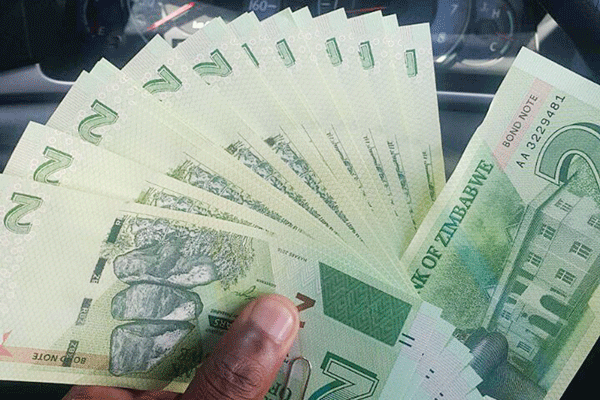
by TAWANDA KAROMBO
JOHANNESBURG — Zimbabwe is trying everything in the book to address a currency crisis that has undermined its productive capacity and threatened its economic sustainability. But its measures so far seem to have had little effect.
The country has since last year flirted with policy reforms aimed at stabilising the flagging financial sector. These began in October 2018, with the separation of local and foreign currency accounts — a tacit recognition by the government that the US dollar-denominated local bond notes and electronic balances were not of equal value to the greenback.
Then, in February, the country’s multiple local currencies — electronic and mobile money, and the bond notes that had been introduced in 2016 to alleviate a cash crunch — were merged into the real-time gross settlement dollar, or RTGS$. Unpegged, it originally floated against the dollar at a rate of 2.5:1 — but soon lost its purchase.
In June, Finance minister Mthuli Ncube took matters a step further, banning the use of foreign currencies in local exchange and reintroducing the Zimbabwe dollar (as the amalgamated currency would now be known). The objective — largely scorned by the opposition at the time — was to reintroduce a local currency and relieve a severe cash shortage.
Ncube also hoped to address a misalignment that had developed between the value of electronic money and bond notes due to a shortage of cash. Currency traders had begun charging mobile wallet holders a premium of up to 50% to access their funds, giving rise to a situation in which goods were priced differently depending on the form of payment. Mobile payment attracted a higher price because of the premium the retailer would have to pay to withdraw that money.
In an attempt to mitigate this, the central bank last month banned mobile money functionality, including deposit and withdrawal services. However, after Econet — which runs the popular EcoCash mobile money service — took the matter to court, central bank governor John Mangudya lifted the ban.
Instead, he imposed a Z$100 transaction limit on cash deposits and withdrawals from mobile money wallets.
- Chamisa under fire over US$120K donation
- Mavhunga puts DeMbare into Chibuku quarterfinals
- Pension funds bet on Cabora Bassa oilfields
- Councils defy govt fire tender directive
Keep Reading
Not that the currency traders have balked: a cash-out still attracts a 40% premium. And even if wallet holders are prepared to stump up for multiple transactions, they can only access 60% of their balance in cash. So the cash shortage, and differential pricing model, has continued.
Now, the government has announced it will print more cash to increase liquidity. Last week, the central bank said it would introduce a Z$2 coin and Z$2 and Z$5 notes this month to boost the domestic availability of cash for transactional purposes through a gradual increase in cash supply over the next six months».
Ncube insists this is just a cash injection, rather than the introduction of yet another currency.
But Joseph Busha, a local businessman and leader of the opposition FreeZim Congress, is not convinced. “When RTGS$ was introduced, it was supposed to increase liquidity. Then came bond notes, and again our liquidity issues [were] not resolved,” he says. “The new currency they want to introduce — I don’t think it will solve anything because it is not backed by production.”
It’s a sentiment echoed by former Finance minister and Movement for Democratic Change MP Tendai Biti. He believes the government should focus on supporting productivity rather than changing currencies. “Productivity is key — importantly, productivity on the farms,” he says. “We have to deal with the enablers of productivity, which include electricity and access to forex.”
In fact, Biti believes the government should swallow its pride and embrace the US dollar again.
But it’s a move President Emmerson Mnangagwa and Ncube have resisted, despite calls by civil servants and striking doctors to be paid in foreign currency.
Ncube has argued that increased production will flow from policy reforms. He insists that a “conversion of short-dated treasury bills into long-dated savings bonds”, issuing of savings bonds, the “use of statutory reserves and cash-backed letters of credit”, and regulating speculative activity in











